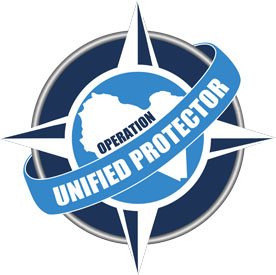
From Alistair MacDonald, John W. Miller and Nathan Hodge, the Wall Street Journal: The North Atlantic Treaty Organization’s Libyan air campaign succeeded in helping rebel fighters on their way to Tripoli, but NATO’s involvement lasted longer than politicians hoped and increased U.S. anxiety about the group’s reliance on American hardware, observers say.
NATO officials say the campaign won’t necessarily be seen as a template for further intervention in the Middle East. The Libyan campaign had United Nations backing, giving it a legitimacy that the U.N. isn’t likely to bestow too readily on other interventions, observers say. Cash-strapped Western governments and their war-weary publics have little appetite for more costly and riskier military adventures. . . .
Despite its successes, the intervention is unlikely to act as a template for future NATO missions, NATO officials say. The Libyan campaign was against a maverick leader with few friends around the world. That made it easier to get the U.N. mandate that authorized the use of "all necessary measures" to protect Libyan civilians. . . .
There were also special factors motivating NATO to intervene in Libya. The country is on Europe’s doorstep. Fears of an uncontrolled exodus of Libyans to the Continent, coupled with Col. Gadhafi’s history of sponsoring terrorism in the West, were among the motivations offered by leaders such as British Prime Minister David Cameron for supporting the move.
The Libyan campaign underscored the increasing defense vulnerabilities of cash-strapped European governments, which have been cutting military budgets. The heads of the navy and air force in the U.K.—perhaps Europe’s biggest military power—said Libya stretched their services to the limit. As the campaign stretched into summer some European politicians increased their criticism of the commitment, while others noted it had taken less time for a NATO air campaign to dislodge the Serbs from Kosovo in 1999.
Image: nato%205%2016%2011%20logo-unified-protector_0.jpg
